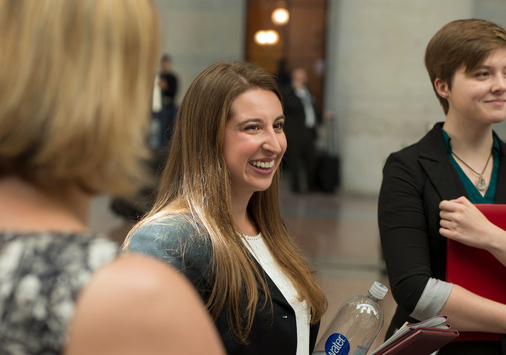
Assistant Professor of Global Commerce Jessica Burch shares the story of how the Covid-19 crisis illustrated a classroom concept in real-life.
In January, I asked students in GC250: Work in the Modern Age to list the jobs they consider most important to society. They named teacher, nurse, social worker, and state or local elected official. At my insistence that we would otherwise die of cholera, they added sanitation worker.
Next, we listed the most highly-compensated jobs. Predictably, there was little overlap between the predominantly female and care-oriented occupations students considered to be of greatest social value and the high-level executives and celebrities who bring in the big bucks. Why, I asked students, does society not compensate workers based on their social value?
Covid-19 has brought our thought experiment to life. Although January now seems long ago, nationwide stay-at-home orders have redefined perceptions about valuable work in a matter of months. States have officially designated some jobs as “essential” social and economic functions: grocery store clerk, warehouse and delivery worker, food service, and health and human service professionals. In other words, Covid-19 has achieved one of the goals of my course: to render visible how much our daily lives depend on service jobs and care work.
Never before has my daily newsfeed so closely resembled a course syllabus. Headlines shout that “Warehouse Workers are Essential” (Washington Post) and explain “How Millions of Women Became the Most Essential Workers in America” (New York Times). Others highlight the discrepancy between the social value care and service workers provide and the wages, legal protections, and prestige they receive in return—“Essential Workers Take Care of Us. We’re Not Taking Care of Them” (Vox).
As a Global Commerce professor, this global pandemic has presented a rare opportunity to engage in creative thinking that was not merely imaginary. Put another way, Covid-19 allowed me to reframe the question from why doesn’t society compensate workers based on social value to how can employers and the state better protect and reward essential workers right now?
For all the challenges Covid-19 has created for teachers—and there are many—it also helped me demonstrate to students why their coursework matters.














